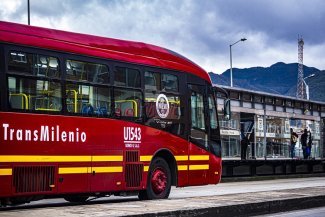There have been numerous examples of the Swazi government protecting its own unjustified privileges at the expense of the human rights of the country’s citizens.
But few examples have captured the country’s imagination like the story of Bhantshana Gwebu, the government’s chief vehicle inspector who was arrested and jailed – simply for doing his job.
On 20 January 2014, the Chief Justice, Michael Ramodibedi, ordered the arrest of Gwebu for giving a ticket to a High Court driver, Vusi Tsela.
Just two days before Tsela was transporting Justice Esther Ota to one of the elite schools in the capital city of Mbabane without prior authority, as required by the law.
Ota made a stop at the school to pick up uniforms for her children en route to work because she was the duty judge for the weekend.
However, according to Gwebu, the car was only assigned to do “court official duties” –and the trip to the school was not part of the equation.
As Gwebu’s job is to ensure that public servants do not abuse government vehicles, he felt justified in charging Tsela and impounding the car.
The judiciary, it seems, disagreed.
“Flight risk”
Ramodibedi issued a warrant of arrest after which Gwebu handed himself to the police in the company of the National Public Servants and Allied Workers Union (NAPSAWU) president Quinton Dlamini.
He was charged with contempt of court.
Ramodibedi initially refused Gwebu the right to legal representation, making the bizarre argument that his lawyer was not present when he committed the crime.
“It was the first time we’ve heard of such a rule,” Dlamini told Equal Times.
When Gwebu applied for bail, government opposed it on the basis that “the union (NAPSAWU) had interfered and politicised the case,” thus rendering the suspect a flight risk.
This claim could not hold in court, however, as Justice Bheki Maphalala pointed out that NAPSAWU is a legal organisation which it is duty-bound to provide moral support to its members.
Gwebu was finally granted a 15,000 lilangeni (US$ 1,375) bail, paid for by the NAPSAWU.
“Desperate”
Swazi unions describe the Bwebu debacle as yet another example of the government’s attack on workers.
“This was part of the desperate attempt by the government to kill the trade union movement in the country,” said Trade Union Congress of Swaziland (TUCOSWA) Secretary General Vincent Ncongwane.
By claiming that NAPSAWU had politicised the matter by merely accompanying Gwebu to the police station, Ncongwane says the government tried to create the perception that it is illegal to be affiliated to a union.
However, TUCOSWA, to which NAPSAWU is affiliated, does remain banned in Swaziland.
It was deregistered just three months after the trade union mother body was instituted by the same government in April 2012.
Since then, police have victimised workers gathered under the TUCOSWA banner.
Political parties are not allowed to operate since the late King Sobhuza II (father of the current Swazi ruler King Mswati III) introduced the country’s unique non-party tinkhundla political system in 1978.
Trade unions are the only vehicle through which workers are able to fight for their political rights.
“A lesson”
Beyond bemusement, international organisations are viewing the Gwebu case as a clear attempt to make an example of anyone willing to expose corruption in the country.
According to Makbule Sahan, a human and trade union rights officer with the International Trade Union Confederation (ITUC), it fits into a general pattern of a government which only pays lip service to democratic reform.
“Swaziland is under the close scrutiny of the ILO (International Labour Organisation) and the United States will review the country’s eligibility under the African Growth and Opportunity Act (AGOA) because of the lack of measurable progress on workers’ rights issues,” said Sahan.
Open Society Initiative for Southern Africa (OSISA) Swaziland Programme Manager, Muzi Masuku, told Equal Times that Gwebu’s trial could set a worrying precedent.
“Gwebu said he did not arrest the judge but the driver,” said Masuku. “So does that amount to contempt of court?”
The trial date is not yet set but Gwebu is currently back at work taking on those who abuse state resources.









